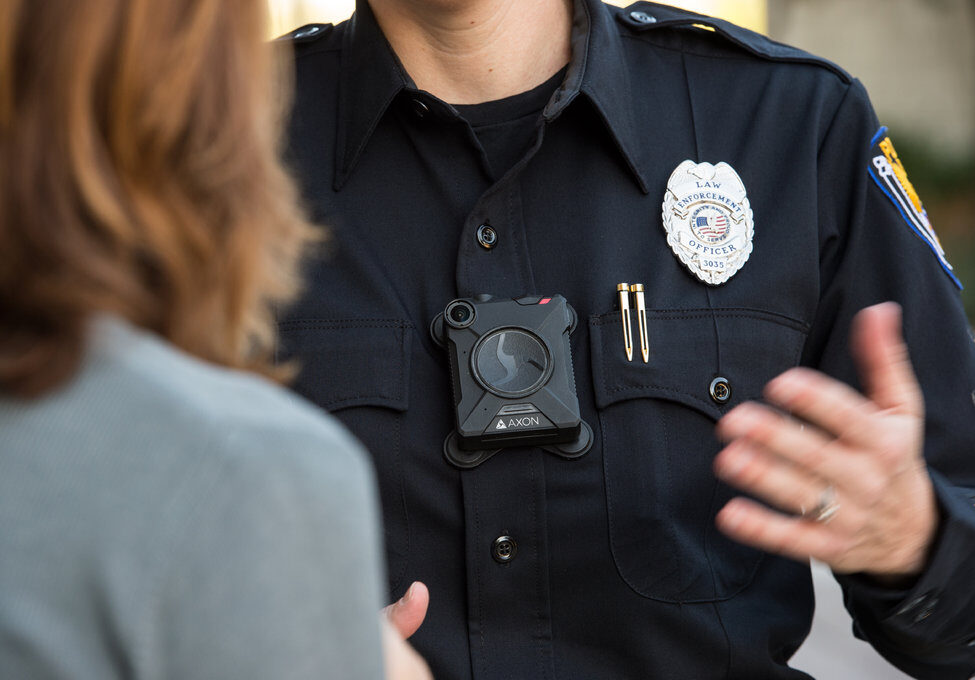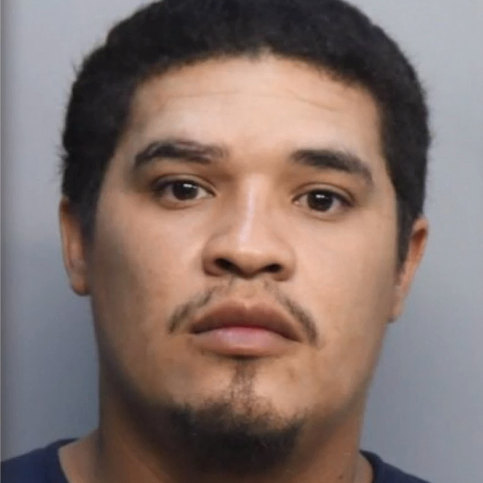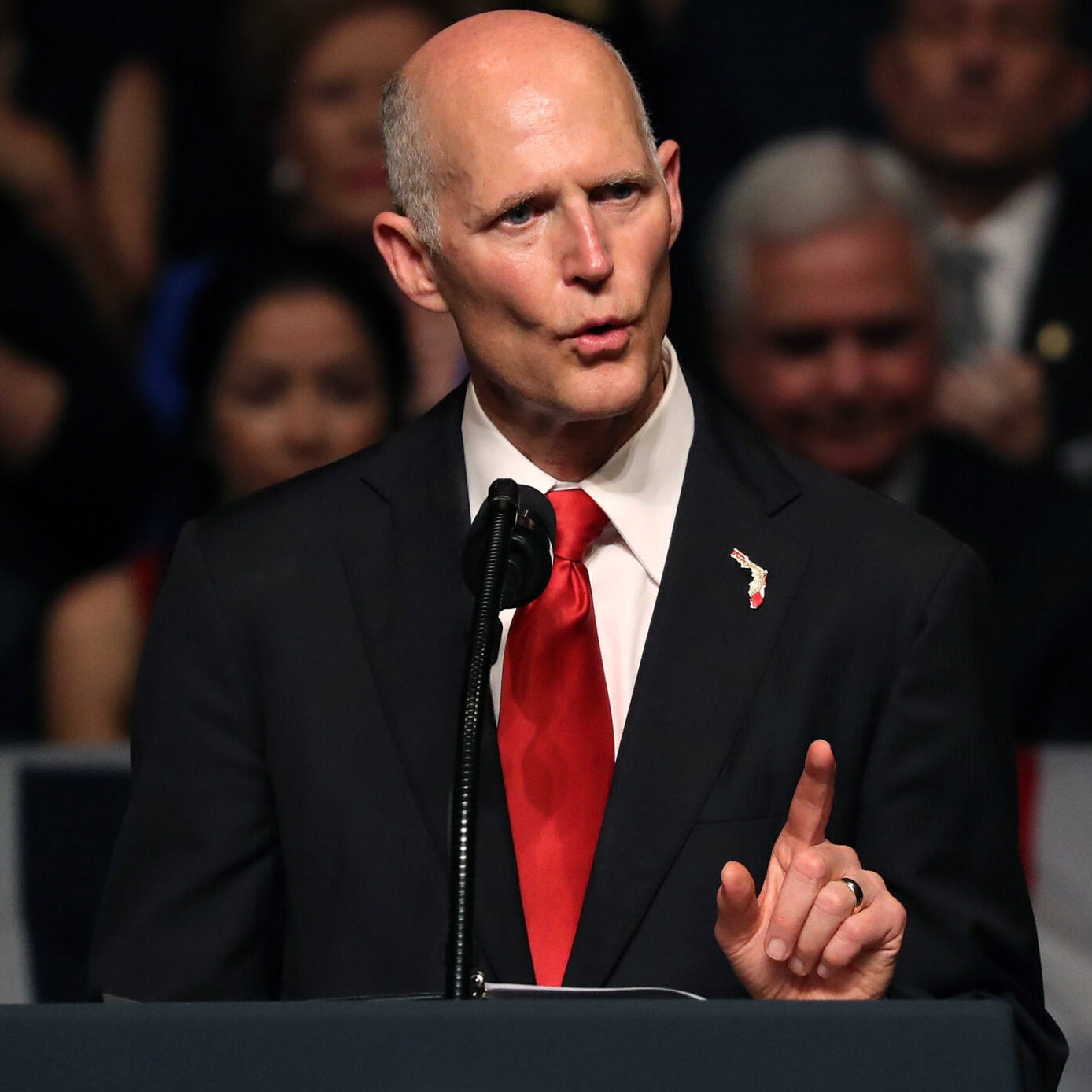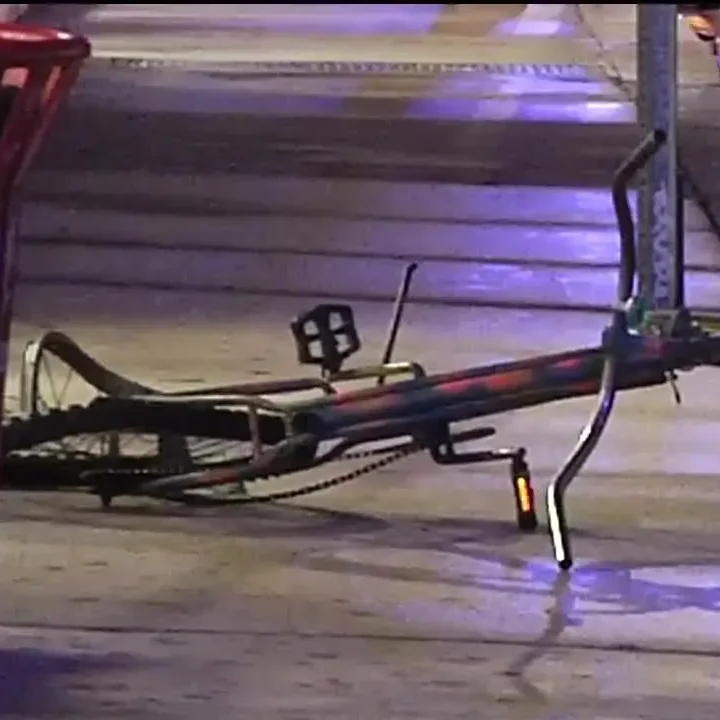Miami police detective Luis Valdes thought it was a test when his sergeant told him to plant cocaine on a suspect on January 27, 2010.
It was Sgt. Raul Iglesias’ first day on the police department’s so-called Crime Suppression Unit, and Valdes was certain his new boss was just testing his mettle.
“We don’t do that here,” Valdes told Iglesias. “Nobody on this team does it.”
The suspect didn’t have drugs on him, and Valdes says he was ready to let him go. But Iglesias had other ideas. He called a friend, an officer from another unit. The two shook hands, and then Iglesias produced a bag of powdered cocaine that he said he found in the suspect’s back pocket. The man was arrested.
Little did Valdes know that interaction would color the next ten years of his life. He would cooperate in an FBI investigation against Iglesias, leading to the sergeant’s arrest in 2012 on charges of violating suspects’ civil rights, possessing drugs, and obstructing justice. Ultimately, Iglesias would be sentenced to four years in prison.
Valdes continued to work for the Miami Police Department (MPD), but he says he experienced routine retaliation for testifying against his former boss during the 2013 trial. In 2015, Valdes was fired for allegedly lying on an arrest form, something he swears he didn’t do. Since then, he says, he’s been unable to get a job in law enforcement.
In an ongoing lawsuit, Valdes is now trying to clear his name. His court complaint, filed in January, alleges widespread corruption, conspiracy, and cronyism in the highest levels of the Miami Police Department. In more than 200 pages of new court records filed on September 14, Valdes accuses high-ranking members of the MPD, including current chief Jorge Colina and former police union president Javier Ortiz, of conspiring against him and his fellow detectives and unjustly firing him after he testified against Iglesias.
In an interview with New Times, Valdes claims that he and his fellow detectives were harassed during the trial in 2013 and threatened by other officers because they chose to speak out.
“We received notes in our mailboxes calling us rats,” Valdes tells New Times.
Valdes has the backing of the Miami Community Police Benevolent Association (MCPBA), the city’s Black police officers’ union, which has previously spoken out against alleged misdeeds in the department and what it sees as a culture of retaliation against officers who expose wrongdoing.
“I support him, and I think he should get his job back,” says Sgt. Stanley Jean-Poix, the MCPBA’s president. “I believe he was retaliated against, and I think he should be made whole.”
For the past four years, Valdes has worked as a security guard, earning significantly less than he once did as a police officer. He hopes the lawsuit will help restore his reputation and pave the way for him to return to policing.
“I miss my job,” Valdes says. “They took my career and what I love to do, for no reason.”
From 2009 to 2013, Valdes was a member of the MPD’s Crime Suppression Unit (CSU) — what he describes as an “elite unit of police detectives” that largely focused on violent crime and drug trafficking in the city. Detectives regularly conducted buy-bust operations, in which undercover officers approached low-level dealers to buy drugs and later arrest them. Valdes says that after witnessing their boss plant drugs on a suspect that day in January 2010, he and other CSU detectives complained to their superiors but were told to give Iglesias a chance.
Valdes tells New Times he saw Iglesias commit multiple crimes while on duty in the months following the drug-planting incident, including taking drugs and money from crime scenes. So four months later, on April 13, 2010, he sent an anonymous letter about Iglesias’ misconduct to the MPD’s Internal Affairs (IA) unit on behalf of the CSU.
“Sgt. Iglesias is stealing drugs and money as they are recovered from the hands of criminals,” the letter said. “He waits until the drugs and money are recovered from the offenders, and after it has been counted, he orders the officers to give the drugs and money to him.”
The MPD called in the FBI to investigate the allegations against Iglesias. Valdes’ fellow detective, Alfredo Matias, cooperated with undercover agents in a sting operation in which Matias led Iglesias to investigate a vehicle with a hidden camera and a shoebox full of money. Iglesias was caught on camera stealing money from the shoebox, according to Valdes’ lawsuit against the city.
The sting resulted in Iglesias’ arrest. In July 2012, federal prosecutors charged the sergeant with obstructing justice, providing false statements, violating suspects’ civil rights, and possessing drugs with intent to distribute.
At Iglesias’ trial in January 2013, federal prosecutors painted the detectives who spoke out against their sergeant as heroes who did the right thing, while the defense portrayed them as liars. Iglesias’ attorney made him out to be an upstanding supervisor overseeing a troubled bunch of subordinates.
Valdes testified against Iglesias in the trial. But when Iglesias took the stand, he denied all allegations of corruption and accused his former detectives of lying. The sergeant said he never stole money or drugs from suspects.
Jurors didn’t believe him. Iglesias was convicted of eight out of the nine charges on the indictment and sentenced to four years in prison.
Valdes says the retaliation started while Iglesias’ trial was still underway.
In his lawsuit, Valdes claims his police car was covered with condoms, and he says no one would show up to assist him when he called for backup. At one point, he says, someone broke into his car and stole case files related to Iglesias’ trial.
Valdes says Capt. Javier Ortiz, then the president of the police union, sat behind Iglesias during the trial, in a show of support for the sergeant. He also claims he was approached by Ortiz in the courtroom, alleging in his lawsuit that the union boss grabbed him by the arm and told him to be “careful what you say” or things could “turn out bad for you.”
Reached by New Times via email, Ortiz said he never “used violence” against Valdes. He didn’t address Valdes’ claims about the comments he is alleged to have made about being “careful” about his testimony.
But the allegation doesn’t seem far out of character for Ortiz, who has a long history of use-of-force complaints, racist actions, and general misconduct. In 2019, a federal judge found that Ortiz had violated the U.S. Constitution by using excessive force on a man by excessively tightening handcuffs on him and leaving him in pain for five hours. Ortiz, a white Hispanic man, has been suspended with pay since January 2020 after falsely claiming to the city commission that he is Black. Nevertheless, he continues to serve as the district director for the statewide Florida Fraternal Order of Police.
Valdes tells New Times that Ortiz called him and those who testified against Iglesias derogatory names.
“He would call us rats whenever he had the chance,” Valdes says. (In an arbitration document attached to the lawsuit, the City of Miami conceded that Ortiz supported Iglesias and had called members of the CSU “snitches.”)
Things at work only grew worse for Valdes. His lawsuit alleges that after the trial, Iglesias’ attorney, Richard Diaz, sent a letter to the MPD’s Internal Affairs unit, accusing Valdes and other CSU officers of lying on arrest reports and committing perjury.
Diaz’s letter, dated January 2013, claimed the detectives lied on their paperwork for an arrest made in March 2010. Members of the CSU wrote that the suspect was armed with a gun, but Diaz said the suspect never actually had a gun and alleged that the detectives planted it on him. To bolster his claim, Diaz pointed out that Valdes never mentioned the gun in radio communications during the arrest.
Internal Affairs, which at the time was headed by current police chief Jorge Colina, opened investigations into the activities of Valdes and three other members of the CSU who had worked with the FBI to gather evidence against Iglesias, including detective Alfredo Matias.
Valdes’ attorney, Michael Espinal, tells New Times that he believes Diaz’s letter and the subsequent internal investigation were retaliatory and corrupt. He suspects Diaz sent the letter to taint the credibility of the CSU detectives who testified against Iglesias so the sergeant could appeal his conviction.
“One of the ways to appeal the finding of a criminal conviction is to attack the credibility of a witness who testified in the criminal trial,” Espinal suggests.
Based on Diaz’s letter, prosecutors with the Miami-Dade State Attorney’s Office investigated both Matias and Valdes for official misconduct — a third-degree felony — but closed the cases, citing a lack of evidence. A July 2014 memo said the matter was being “handled administratively” by the police department.
Matias and Valdes say they were each offered a deal by Internal Affairs investigator Umset Ramos, who worked under Colina at the time: Sign a reprimand in which they admitted to having lied in the case Diaz cited in his letter, or be terminated.
While he was still under investigation, Valdes says, Ramos sent him a text asking if they could meet up behind a gas station on January 9, 2014, away from police headquarters, to talk. Valdes says he didn’t know what the text was about but was suspicious about meeting with the investigator on his case outside of an official department office. Valdes decided to secretly record the meeting with his cellphone.
“I had no idea why he wanted to meet me there. It worried me a little bit, so I recorded him,” Valdes says.
On the audio recording, which was reviewed by New Times, Ramos can be heard saying that the investigation was being conducted out of “vengeance” and “spite,” and that Valdes had been dealt “a bad hand” because he saw a supervisor do something wrong.
Valdes says Ramos advised him to sign the reprimand document admitting he had lied in the case alleged in Diaz’s letter. He told Valdes he’d be suspended for a short amount of time and could then return to his job. If he didn’t sign the reprimand, on the other hand, he’d be “rolling the dice.”
Valdes still wasn’t convinced. He says he didn’t want to admit to lying when he hadn’t lied. In January 2014, after his meeting with Ramos, Valdes says Colina called him in to a meeting and told him, “Change [your] fucking stories or be fucking fired.” (Matias corroborated that story in an affidavit attached to Valdes’ lawsuit.)
Today, Colina doesn’t exactly deny Valdes’ version of events, but he says he can’t vouch for the detective, either. The police chief tells New Times he doesn’t recall a meeting in which he told Valdes to recant his story.
“I would find it very odd that I would meet and discuss a case openly” with an officer being investigated, Colina says. “We just don’t do that.”
Colina says there was no conspiracy to discredit Valdes or other CSU detectives in order to protect Iglesias or bolster the grounds for his appeal.
“That makes no sense,” Colina says. “If we felt this was going to be an embarrassment, we wouldn’t have even investigated the [Iglesias] case.”
He brings up the April 2010 letter from Valdes that started the investigation: “We could have easily said it had no merit if we were concerned the department was going to have a black eye.”
Colina says the subsequent letter from Diaz in January 2013 highlighted several instances of alleged deception by the CSU detectives, and Internal Affairs had to investigate the claims.
“We were compelled to investigate that, also. And, unfortunately, we did see there was misconduct on the part of the detectives as well. There was ongoing corruption in that unit,” Colina says.
MPD’s Crime Suppression Unit was disbanded in April 2013. When the U.S. Department of Justice (DOJ) in 2011 launched an investigation into the MPD over allegations of excessive use of force, the DOJ pointed to specific problems within the department’s specialized units, including the CSU. A letter summarizing the DOJ’s findings says that 9 out of 17 police shootings in 2010 and 2011 involved officers from specialized units.
Valdes and Matias remained with the department after the CSU was disbanded, but Diaz’s letter cast a shadow over their future. They were terminated in February of 2015, having refused to admit to wrongdoing.
Both men appealed. But Valdes says when he first sought representation from the police union, FOP president Javier Ortiz refused to provide an attorney.
Valdes and Matias were unemployed and running out of money to fund their own defense.
At that point, they were told by an FOP leader that the union would represent them if they asked one more time. Both detectives were given the same attorney, who advised them to agree to arbitration, which would result in a binding legal decision on their employment.
The two detectives went with the attorney’s advice and entered into separate arbitration cases. In Matias’ case, arbitrator James L. Reynolds found that Internal Affairs did not have sufficient facts to terminate him. Reynolds went so far as to say that the termination of both Matias and Valdes was retaliatory.
“The evidence in the record supports a finding that the termination of Det. Matias, and Det. Valdes, for that matter, was complete retaliation for their cooperation with the government and for helping expose Sgt. Iglesias’… reprehensible criminal conduct,” the arbitrator in Matias’ appeal wrote. Ultimately, Matias was given his job back.
Valdes wasn’t so lucky.
The arbitrator in his case, James D. Stokes, upheld his termination.
Colina maintains that Internal Affairs acted properly.
“What I can tell you, without a doubt, is that we in IA certainly didn’t retaliate,” the chief tells New Times.
On September 23, 2020, the City of Miami filed a motion to dismiss Valdes’ lawsuit, claiming the statute of limitations has expired. A hearing is scheduled for January.
Valdes’ attorney Michael Espinal disputes the city’s timeline and says the fired detective still has a case. A judge has yet to rule on the city’s motion for dismissal.
As part of the legal battle, Matias gave a sworn statement corroborating Valdes’ story. A week after his statement was filed on September 14, Matias was relieved of duty by the MPD, meaning he still gets a paycheck but his gun and badge were taken away.
Espinal tells New Times that Matias was not informed why he was let go.
“Our position is that it appears to be keeping with the pattern of retaliatory conduct perpetrated by the Miami Police Department,” says Espinal. “We find it odd that the moment we file a complaint that has his affidavit, he’s relieved of duty. He didn’t violate any laws.”
Matias declined to speak with New Times.
Iglesias has been out of prison for about two years now. His attorney, Richard Diaz, tells New Times that he has evidence showing that Valdes and other CSU detectives were “renegades” who regularly lied on arrest forms long before Iglesias became their supervisor back in 2010. Diaz tried to present his findings during the 2013 trial, but the judge didn’t allow the introduction of evidence not directly related to the case.
For the past seven years, the evidence presented during Iglesias’ trial has been subject to a court order to protect the safety of the witnesses who testified. But Diaz has filed a motion to reopen the case, lift the protective order, and make public all of the evidence that he says would prove Valdes and other CSU detectives are corrupt. Diaz’s motion says Valdes’ lawsuit presents “a conspiracy theory that is worthy of a Hollywood movie or even a Netflix series.”
The attorney says he and Iglesias were shocked to hear Valdes is suing the city to get his job back. Diaz maintains that Valdes was rightfully fired.
“The gall that he has,” Diaz says. “What can I say? Only in Miami.”





